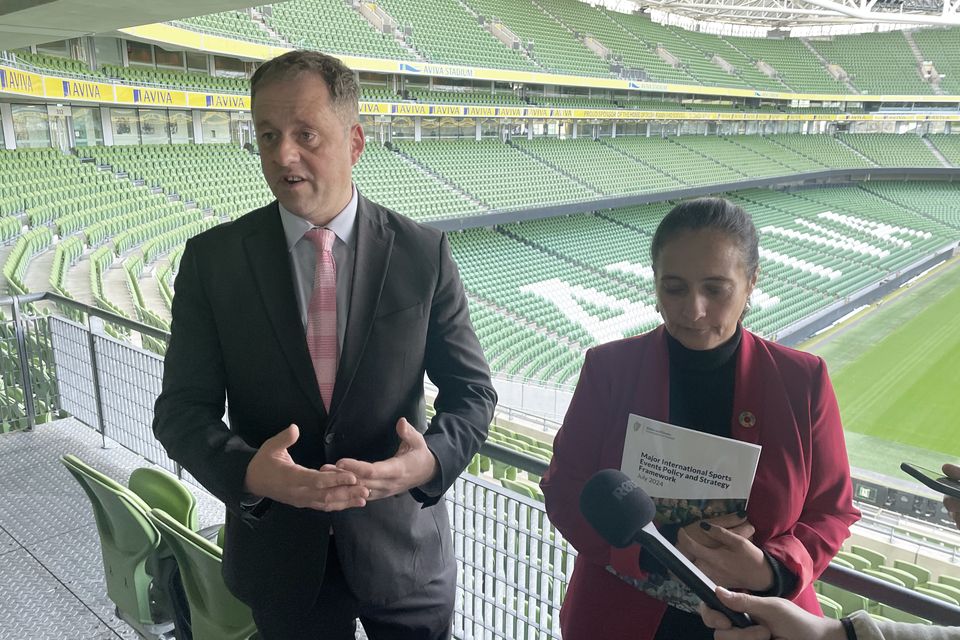Greyhound racing is not a sport, says junior minister for sport

Minister of State for Sport Thomas Byrne and Minister for Culture Catherine Martin launched a major international sports events policy and strategy framework at the Aviva Stadium in Dublin (PA)
By Gráinne Ní Aodha,
Greyhound racing is “not a sport” and is not as popular as it used to be, junior minister Thomas Byrne has said.
The minister of state with responsibility for sport and physical education said that greyhound racing is “an industry” rather than a sport.
He added if its state funding were to be reduced, it should not be assumed that it would go to sports organisations.
The Government increased funding for horse and greyhound racing by 4.1 million euro in Budget 2025, bringing the total state funding for greyhound racing to 19.8 million euro.
Asked whether that funding should instead go towards supporting Ireland’s athletes, Mr Byrne said “zero” funding was allocated by his department to greyhound racing.
“It’s not seen as a sport, it’s not under Sport Ireland, it’s not under our department,” Mr Byrne said.
“It’s within the Department of Agriculture and I think if that money were taken from greyhounds, I assume the Department of Agriculture would want to keep it.
“I don’t think it should be assumed that it automatically goes to sport. It’s not a sport. It’s not a sport under Sport Ireland, it’s not in competition with our sports.”
He added: “It’s an industry, effectively, and it’s a traditional industry that, quite frankly, isn’t as popular as it once was.”
Asked whether state funding for greyhound racing should be decreased, he said: “I want to prioritise the increasing of funding for sport.”
Mr Byrne said that Government funding for sports had “gone to another level”, doubling in less than 10 years.
“The funding for sport includes funding for high performance, funding for national governing bodies, facilities, major events, but there’s also other funding around the place that doesn’t get counted. So for example, Tallaght Stadium, that was funded by the Department of Housing.
“There are other examples of that around the country, local authorities fund a lot of local sporting projects.
“Our sporting budget in our department is at record levels, and we want that to increase even further. But there’s lots of other sources of funding for sport around the country that aren’t included in that. But we give nothing to greyhound racing, and it is not considered a sport.”
Mr Byrne was speaking at an event at the Aviva Stadium, alongside Culture and Sports Minister Catherine Martin, to launch a Ireland’s national strategy for hosting major international sporting events.













